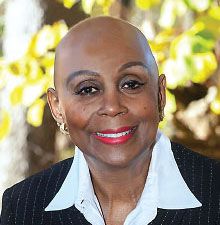APA Fireside Chat Addresses Awareness About COVID-19 Vaccination
Abstract
“Vaccine inquisitiveness” may be a more accurate term than “vaccine hesitancy” for patients who question vaccination, say experts.
In April APA hosted a two-part webinar series that examined strategies and opportunities to improve the mental health of Black people during the COVID-19 pandemic. The webinars, the first of APA’s Mental Health Equity Fireside Chat series, also aimed to raise awareness of the COVID-19 vaccines and build trust in their safety and efficacy. The first part was for the general public and the second part was for APA members. The chat was moderated by Regina James, M.D., deputy medical director and chief of APA’s Division of Diversity and Health Equity.

The term “vaccine inquisitiveness” empowers patients to ask questions. —Kizzmekia Corbett, Ph.D.
During the chat, Kizzmekia Corbett, Ph.D., a viral immunologist, research fellow, and team lead for the development of the Moderna vaccine at the National Institutes of Health, discussed the term “vaccine inquisitiveness” as an alternative to “vaccine hesitancy.”
“When you call it inquisitiveness, you are giving patients the power to ask questions,” Corbett said. “Oftentimes it is not that they’re hesitant, but that they just want to know about the vaccine, like what’s in it, how it was developed, does it cause infertility—things like that.”
APA Distinguished Life Fellow and President-elect of the Black Psychiatrists of America Cynthia Turner-Graham, M.D., spoke of the importance of patient autonomy and being a conduit of information for those seeking to learn about the vaccines.
“For my patients, it really helps them to understand that I am there just to give them information and satisfy their inquisitiveness. It is their decision and body, not mine,” she said. “My job is to give them the best information I can so they can make the best decision for themselves.”

Psychiatrists are in a position to address the needs of “long haulers,” patients who still have not completely recovered from COVID-19 weeks or months after their first symptoms. —Cynthia Turner-Graham, M.D.
Corbett noted the importance of professionals in various fields each doing their part in addressing the challenges of the pandemic.
“If you’re a scientist, you’re learning the science so you can help others make informed choices on the vaccines. [If you are a mental health professional], you understand the way this affects mental health so you can treat people better,” she said.
Turner-Graham addressed psychiatrists directly.
“To my fellow psychiatrists, we are in an interesting moment as a profession in which we have opportunities to impact the way this pandemic plays itself out and [address issues] after the pandemic is over,” she said. She spoke of the challenges faced by “long haulers,” people who had COVID-19 and still have not fully recovered weeks or months after first experiencing symptoms, some of whom may also develop neuropsychiatric problems. “We are in a position to make a difference for people who are suffering and in educating others about how to care for them.” ■
A video of the public chat is posted here.



